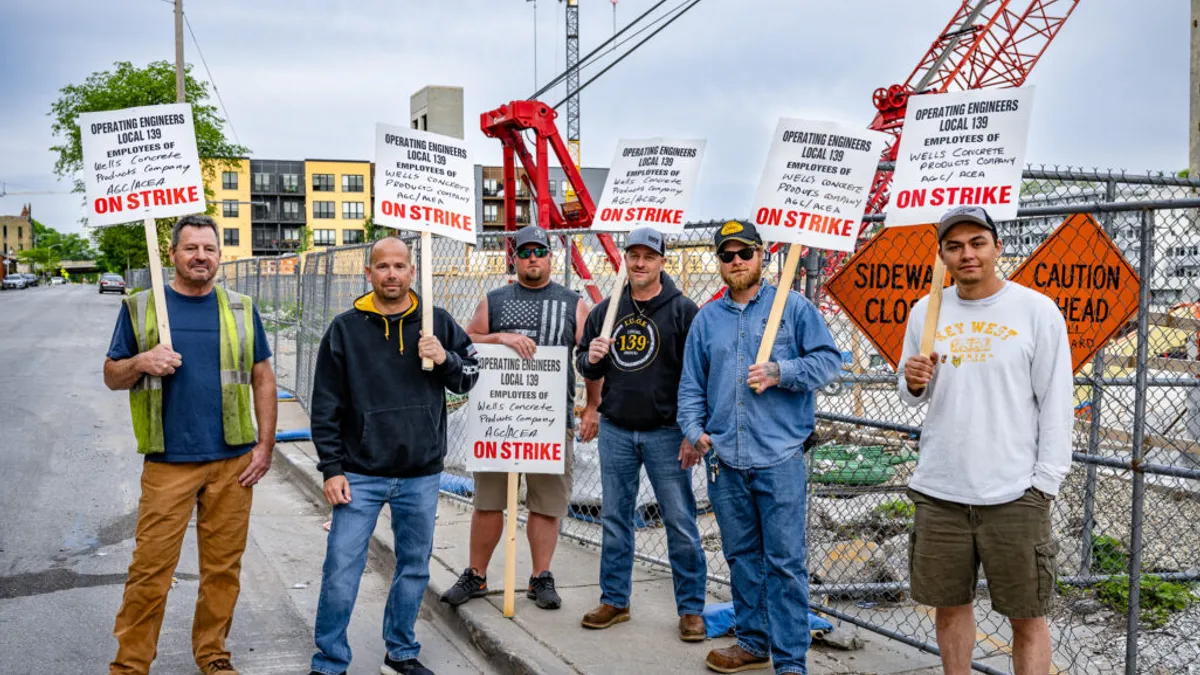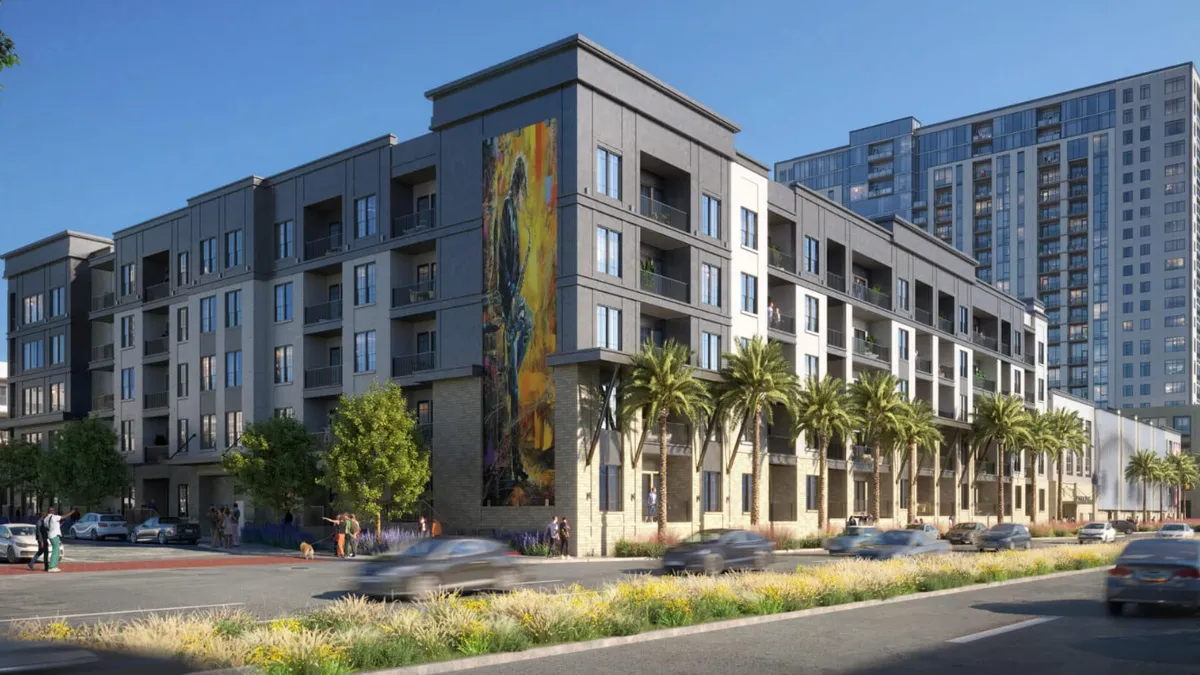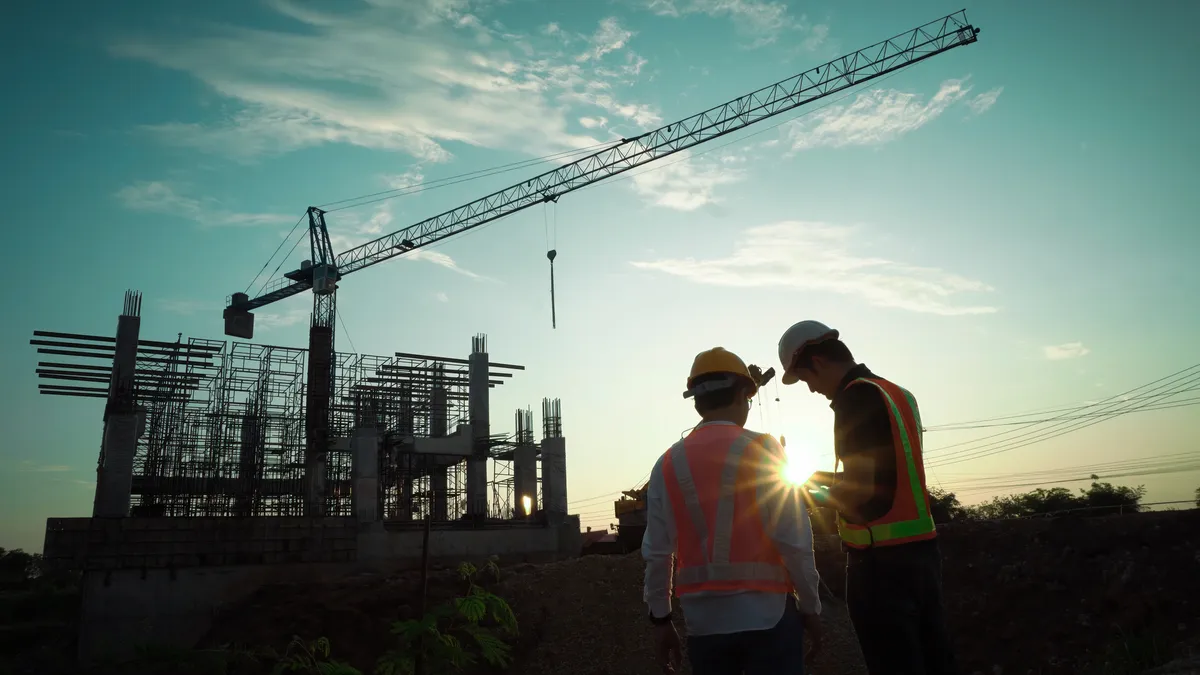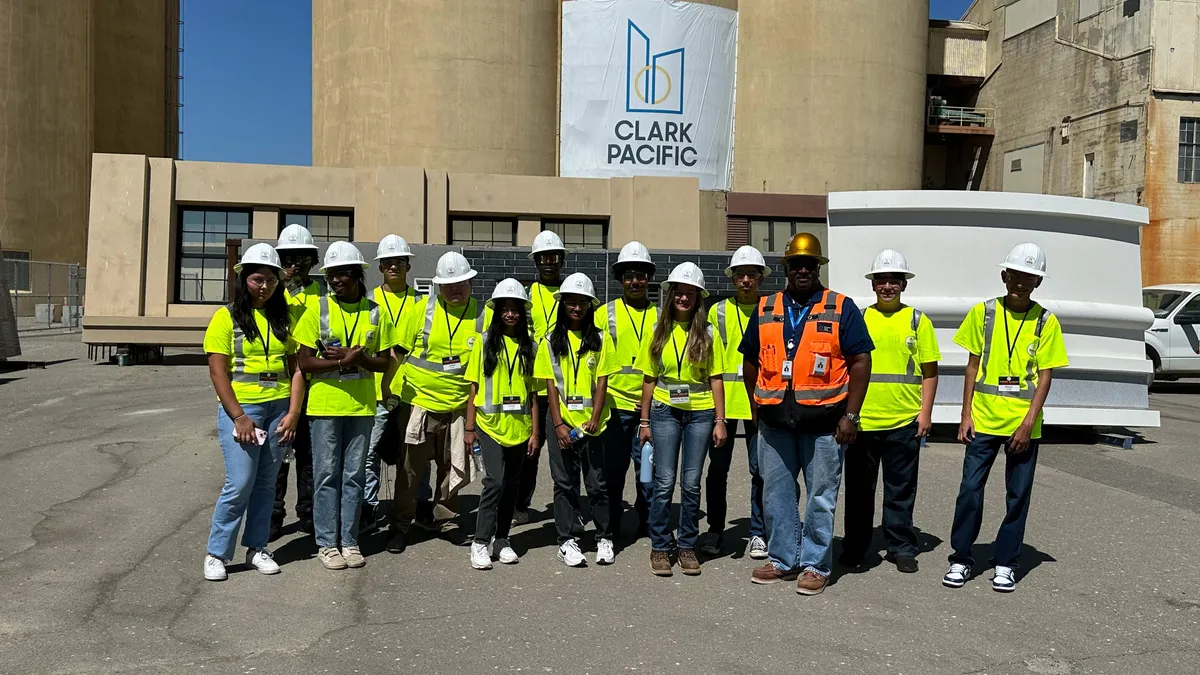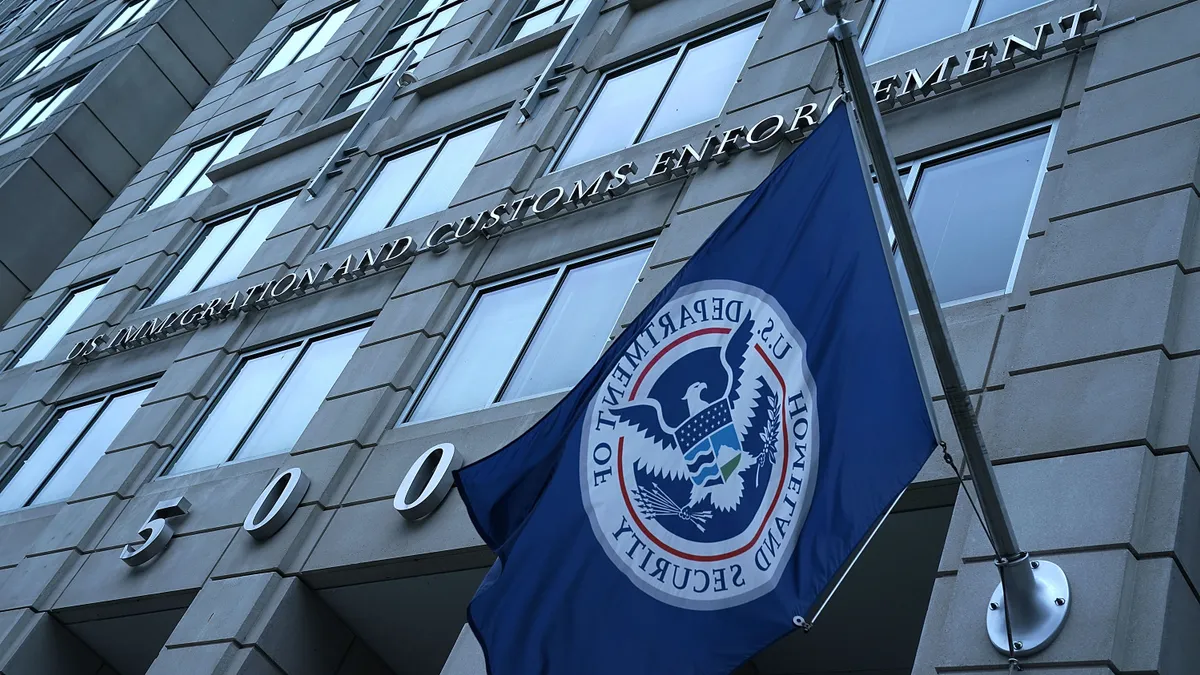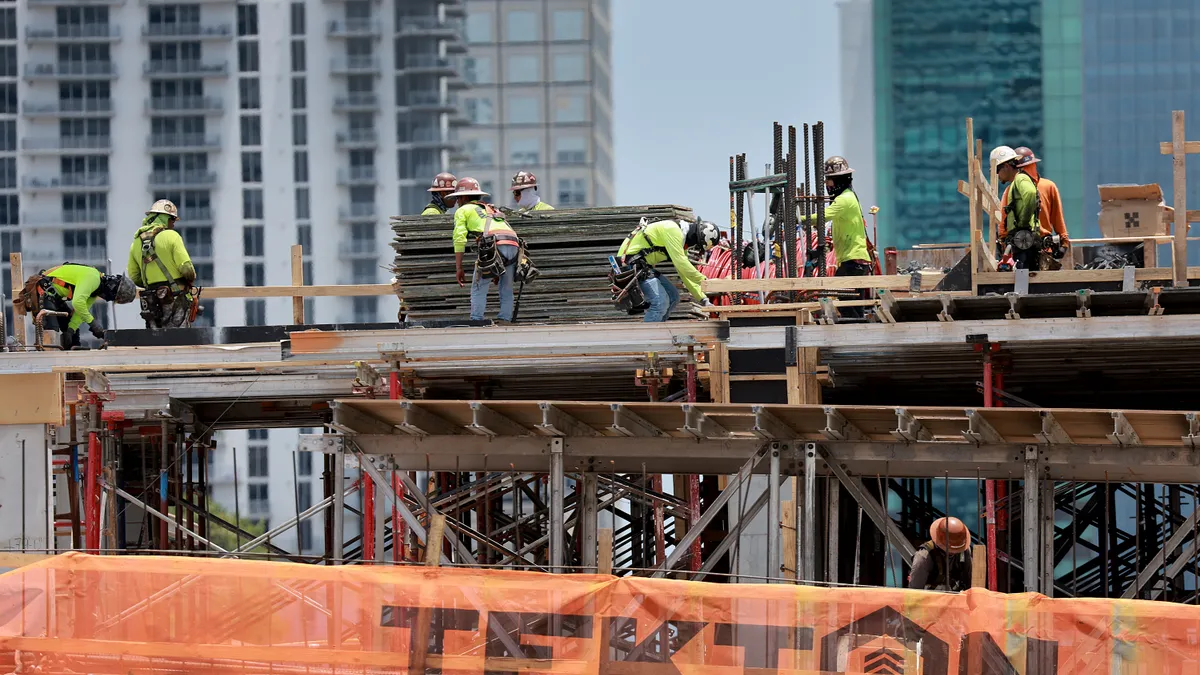Jobsites in Wisconsin and Washington have seen construction work paused or delayed due to workers’ strikes in recent weeks.
In the Badger State, about 800 members of the International Union of Operating Engineers Local 139 went on strike starting June 1. Members of the union working under a contract with employer groups Allied Construction Employers Association and the Association of General Contractors of Greater Milwaukee have stopped work, staging protests and demanding better pay.
The engineers operate all varieties of heavy machinery, such as cranes, bulldozers, front-end loaders and more. The employer groups did not respond to Construction Dive’s request for comment.
Projects in Wisconsin that have paused work due to the strike include a parking garage near Froedtert Hospital in Wauwatosa, apartments on the eastern side of Milwaukee, the Milwaukee County Human Services building and a rec center at Marquette, Wisconsin public radio reported.
Seattle strike
A 30-hour drive west, the spark of a 10-week strike is burning strong, delaying some work on new construction projects.
Members of the International Brotherhood of Electrical Workers Local 46 have been on strike since April 11. The walkout involves 1,023 limited energy electricians, who work on systems like fire alarms, security systems and phone lines, and the National Electrical Contractors Association.
The union wants paid holidays — as opposed to what its members feel are basically forced, unpaid days off — higher wages and more radios over safety concerns, said Megan Kirby, limited energy business rep for Local 46. Often, electricians may be in the field with little to no cell reception, Kirby said.
The fight for the change has been necessary, Kirby said, as around 30% of the union’s limited energy workers — who largely work in new construction — have exited the local in recent years for other work. The workers leave largely for companies or jobs that provide the benefits they’re demanding. NECA did not respond to Construction Dive’s request for comment.
Ten weeks is a long time to strike, Kirby said. Projects affected in the area include office projects for Amazon and Microsoft, the Seattle Times reported.
“It’s rough, I’m not going to sugar coat it. Our members are struggling, they haven’t had a paycheck in 10 weeks,” Kirby said, but added the union has had a lot of support from other IBEW chapters or even other nearby union groups. “They know that they deserve better and they’re willing to fight for it, and they still have a lot of fight in them.”
Pro-labor trends
Strikes have garnered national headlines recently, in a variety of industries. Last August, Teamsters employed by UPS earned a major salary bump in a strike-avoiding deal. In September, the Writers Guild Association reached a deal with movie producers which included agreements around the use of artificial intelligence. In October, Kaiser Permanente struck an agreement with a coalition of unions representing 75,000 employees, following the largest-documented healthcare strike in U.S. history.
Today, the labor force wields more power than it has in recent years, said John Logan, professor of labor and employment studies at San Francisco State University, as the demand for workers is high, but unemployment is low.
At the same time, economic strife from headwinds like inflation have taken their toll on American workers, Logan said. For example, the cost of living on the West Coast, he noted, has skyrocketed with no signs of dropping soon.
“There are many workers who feel that they have fallen behind over the past decade or two depending on the sector and now they’ve kind of had enough,” Logan told Construction Dive. “There’s a lot of anger or frustration out there but there’s also a sense that this is a good time to make these wage demands and sort of strike or threaten to strike.”
There could also be spillover for open-shop employers, Logan noted, as part of the high demand for construction workers stems from federal infrastructure dollars funding new projects. With strings attached such as Davis-Bacon requirements, unions negotiating for higher pay may mean higher wages for nonunion workers on federal projects.
“All in all they’re in a good position to make these demands right now in terms of the economic and political climate,” Logan said. “It is likely we will see more strikes of this kind in the union sector.”



